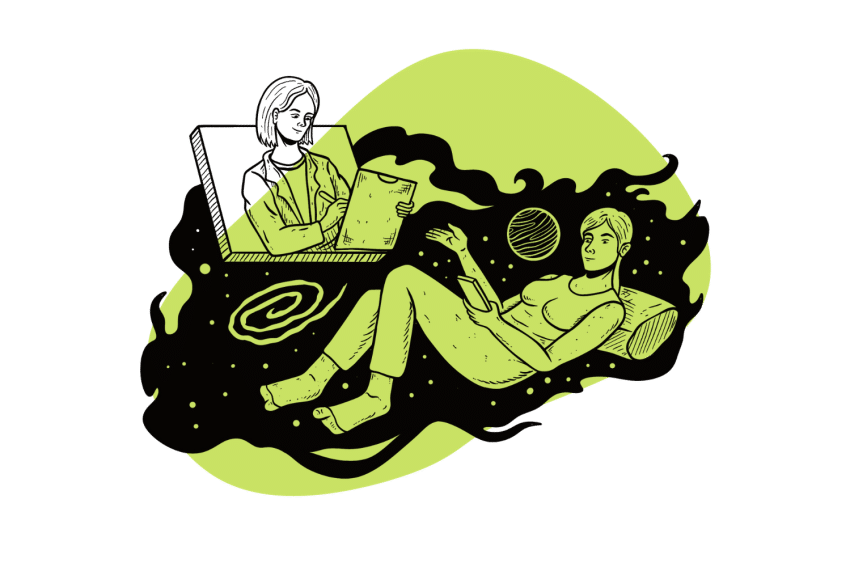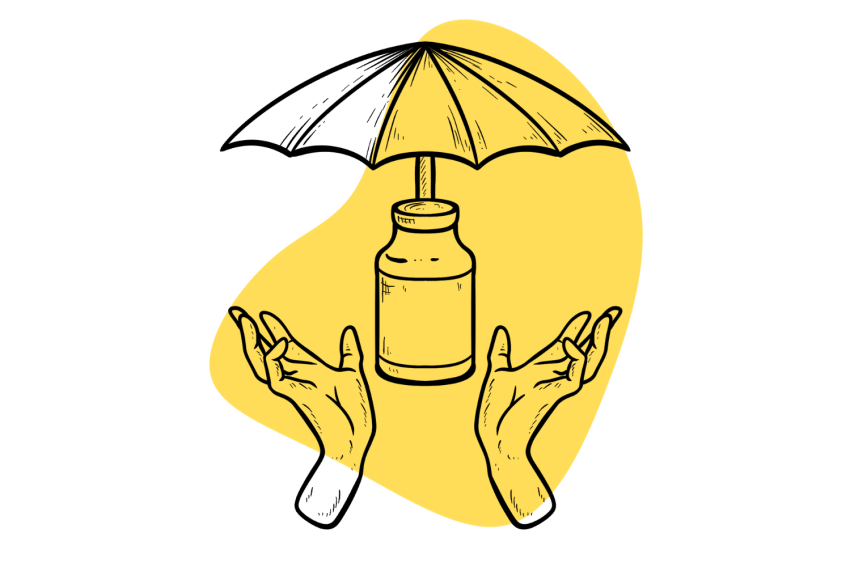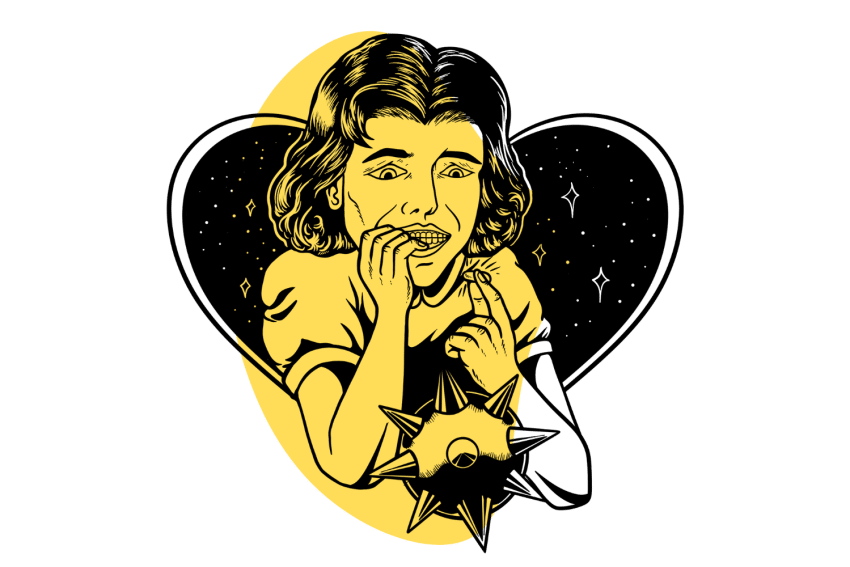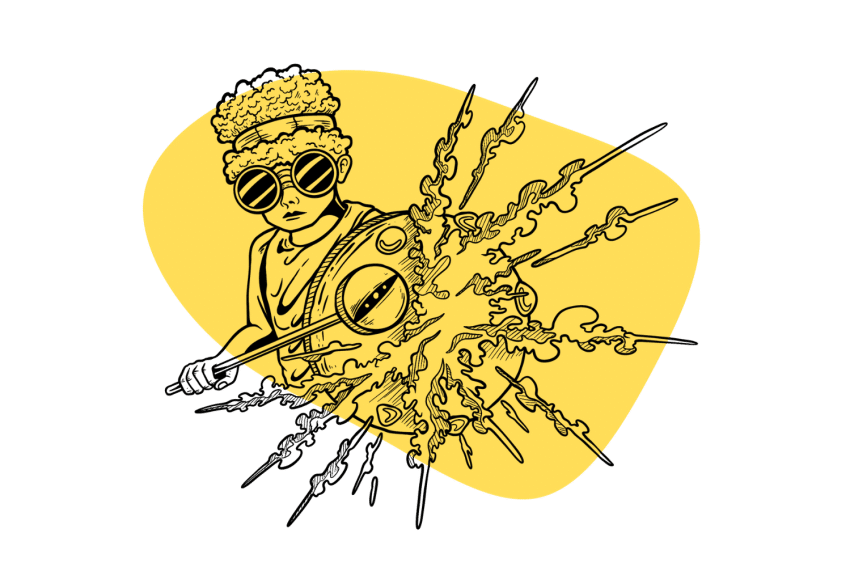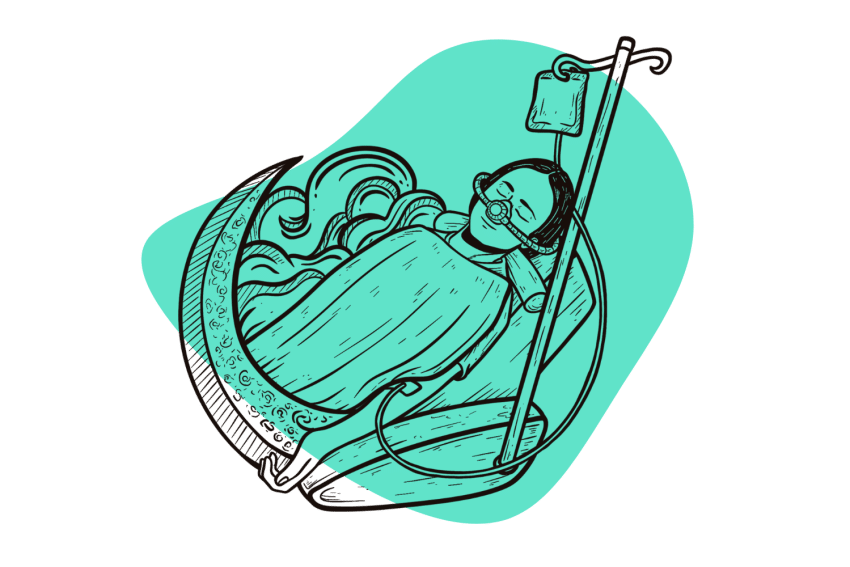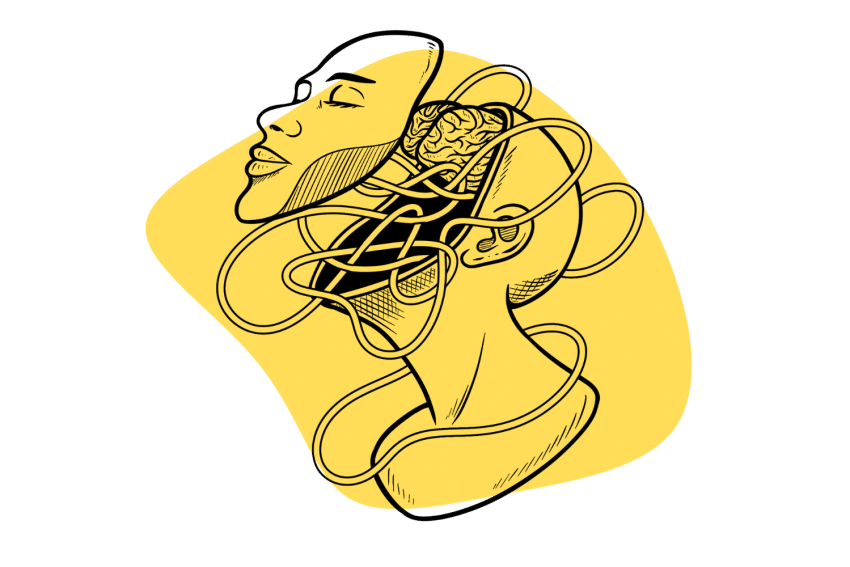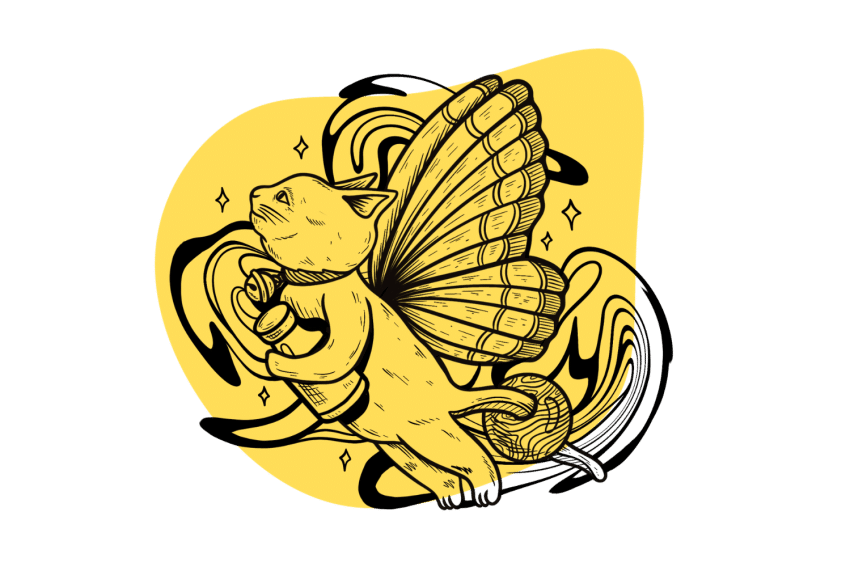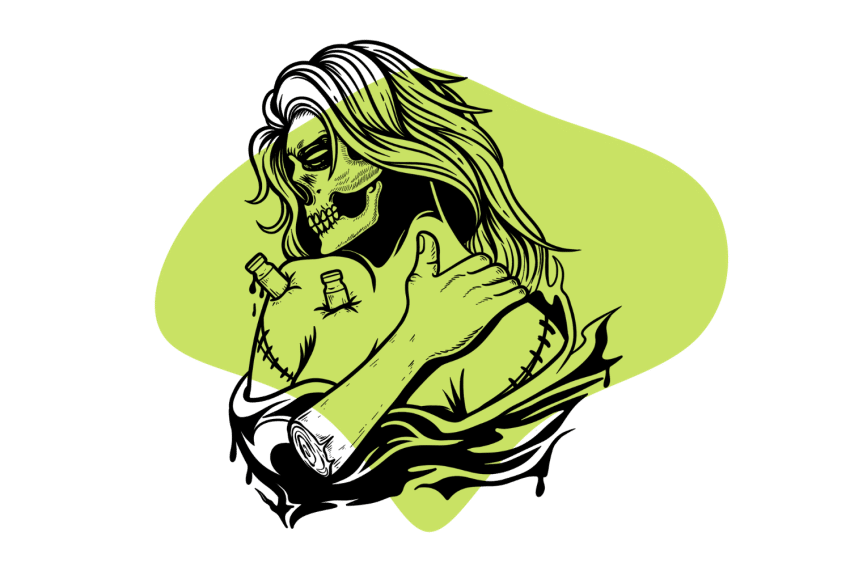Johnson & Johnson’s SPRAVATO: A Breakthrough in Ketamine-Based Depression Treatment?
Spravato is Johnson & Johnson’s ketamine nasal spray.
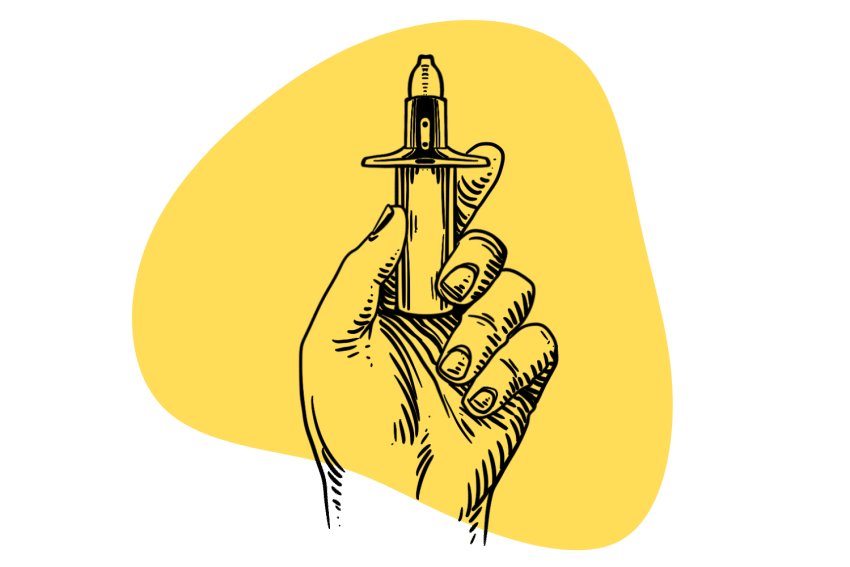
What is Johnson and Johnson Spravato?
Spravato is a brand-name prescription nasal spray. Esketamine or (S)-ketamine is the active ingredient in Spravato. It’s the ingredient that makes the drug work.
Esketamine is an enantiomer of ketamine — which is an arylcyclohexylamine drug with an impressive range of psychoactive and antidepressant effects.
Ketamine is a racemic mixture (a 50:50 mixture) composed of equal amounts of two mirror molecules, (S)-ketamine and (R)-ketamine [1]. Johnson & Johnson’s Spravato is the enantiopure form containing only (S)-ketamine.
Ketamine is a Schedule III substance used as a general anesthetic and a dissociative drug. Patients who receive intravenous ketamine at a clinic receive both (S)-ketamine and (R)-ketamine.
Preclinical data suggests the other enantiomer (pure (R)-ketamine) could be more potent and longer-acting than esketamine and ketamine [2] — but more research is needed.
What is Spravato Used for?
Spravato is a prescription drug approved by the Food and Drug Administration (FDA) for two conditions:
1. Treatment-Resistant Depression (TRD)
Patients with major depressive disorder who have not responded to two or more oral antidepressants may have TRD. Physicians typically determine if a patient is suffering from TRD based on their history of antidepressant use.
2. Major Depressive Disorder (MDD) With Suicidal Ideation or Behaviors
MDD is also known as clinical depression. Spravato is also used in patients with MDD who have suicidal thoughts or behaviors.
For both TRD and MDD, Spravato is prescribed alongside another oral antidepressant. It can be taken short or long-term.
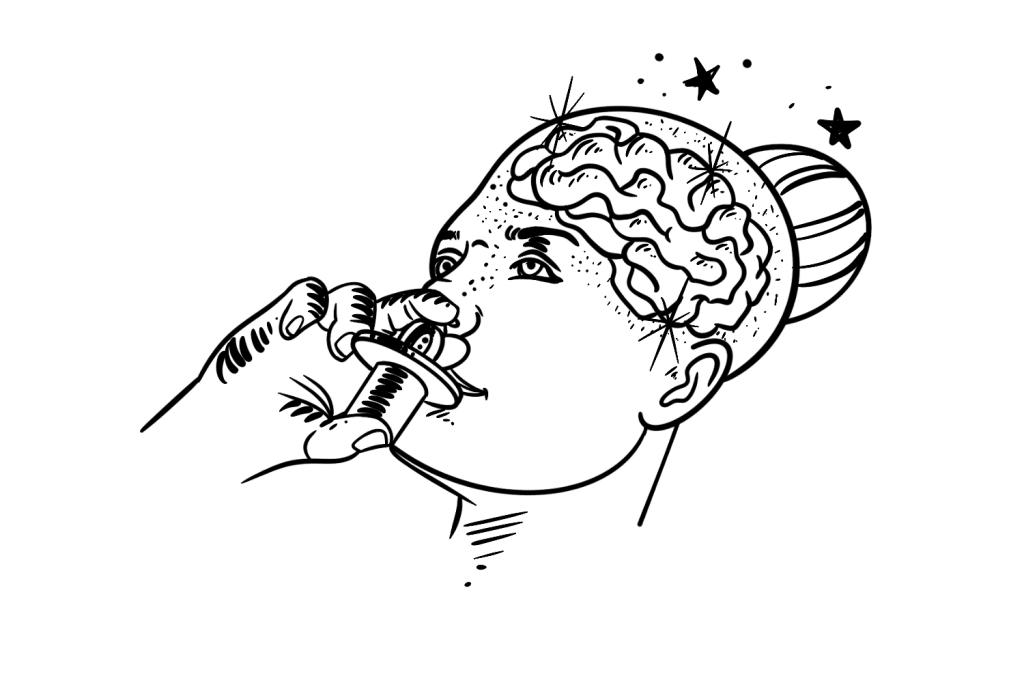
The patient administers the drug through the nose under the guidance of a doctor at a certified healthcare facility. This drug is approved for use in adults but not in pediatric patients (children).
Spravato Side Effects
You may expect to feel some of the following side effects after a Spravato treatment:
- Nausea and vomiting
- Sleepiness
- Dizziness
- Dissociation
- Cognitive impairment
- Vertigo (feeling like the room’s spinning when it’s not)
There’s an increased risk of Spravato causing suicidal thoughts and behaviors in adults ages 18 to 24. The risk is highest during the first months of treatment or whenever the dosage is changed.
Clinical Trials on Spravato
There are a few clinical studies that show promising results for Spravato treatment.
Treatment-Resistant Depression (TRD) Clinical Study
1. A Four-week Spravato Study for TRD
A clinical study that lasted four weeks showed that Spravato reduced symptoms of treatment-resistant depression in diagnosed patients.
The study was conducted on two groups. One group was given Spravato alongside an oral antidepressant. The other group was given a placebo and an oral antidepressant.
The depression symptoms were measured on a scale of zero to 60, and the Spravato group showed a 4-point improvement more than the placebo group. The biggest improvement was noticed within the first 24 hours of taking this drug.
A 4-week Spravato treatment is known as the Induction Phase. During this phase, the patient is administered two or three devices of esketamine (28 mg each) twice a week for a total of four weeks.
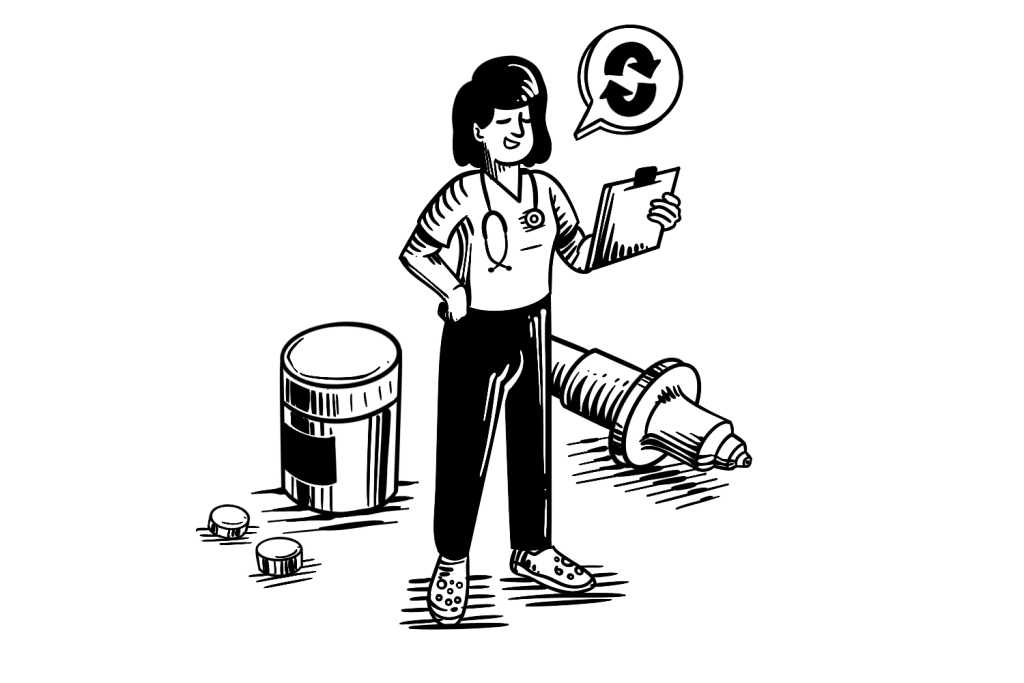
2. A Year-long Spravato Study for TRD
Following the 4-week trial, people who noticed a significant improvement in depression symptoms enrolled in a year-long study [3].
Similarly to the 4-week study, the year-long trial investigated Spravato versus placebo in two groups. The study found that Spravato reduces symptoms of depression.
Patients who took the drug had a 51% to 70% lower chance of relapsing to severe depression compared to the placebo group.
This extended treatment phase is known as the Maintenance Phase, where the dosage is personalized for each patient based on the outcome of previous treatment.
Major Depressive Disorder (MDD) Clinical Study
One 4-week clinical study compared the effects of Spravato nasal spray (plus standard of care) versus placebo (plus standard of care) in two groups of patients diagnosed with moderate-to-severe MDD who had active suicidal ideation and intent.
The study found that the depressive severity score in patients who administered Spravato was lower (less severe depressive symptoms) than in the placebo group.
The study also revealed that Spravato plus standard care didn’t relieve patients’ suicidal severity within 24 hours after the first dose compared to the placebo.
References
- Jelen, L. A., Young, A. H., & Stone, J. R. (2021). Ketamine: A tale of two enantiomers. Journal of Psychopharmacology, 35(2), 109–123.
- Passie, T., Adams, H., Logemann, F., Brandt, S. D., Wiese, B., & Karst, M. (2021). Comparative effects of (S)-ketamine and racemic (R/S)-ketamine on psychopathology, state of consciousness and neurocognitive performance in healthy volunteers. European Neuropsychopharmacology, 44, 92–104.
- Daly, E., Trivedi, M. H., Janik, A., Li, H., Zhang, Y., Li, X., Lane, R., Lim, P., Duca, A. R., Hough, D., Thase, M. E., Zajecka, J., Winokur, A., Divacka, I., Fagiolini, A., Cubała, W. J., Bitter, I., Blier, P., Shelton, R. C., . . . Singh, J. (2019). Efficacy of Esketamine Nasal Spray Plus Oral Antidepressant Treatment for Relapse Prevention in Patients With Treatment-Resistant Depression. JAMA Psychiatry, 76(9), 893.

